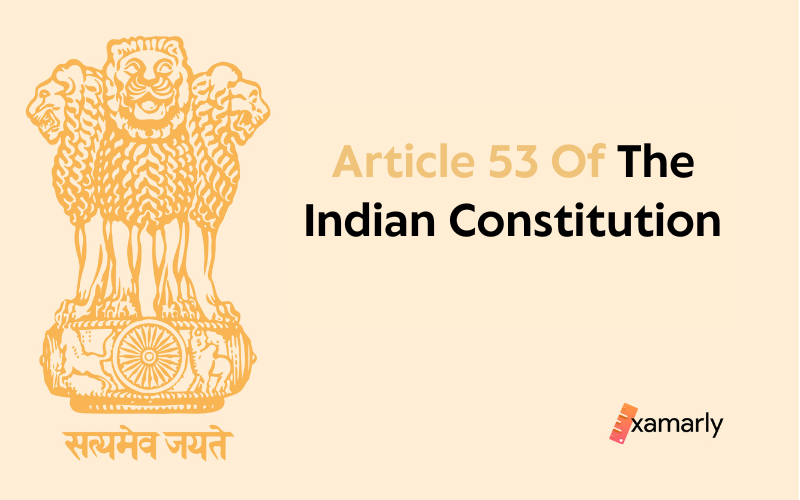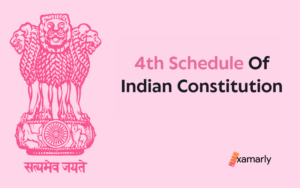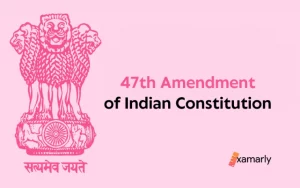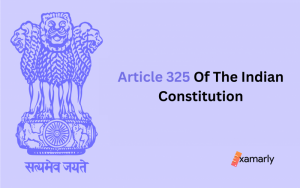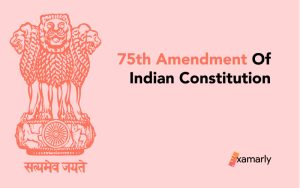As per the provisions of Article 53 of the Indian Constitution, the President is granted executive authority over the Union, which he may use directly or through officers who report to him in conformity with the Constitution.
The President will defend the highest command of the Union’s defense forces, subject to the generality of the aforementioned article, and its exercise will be governed by legislation.
What Is Article 53 Of The Indian Constitution?
The President’s executive power is granted to him by Article 53 of the Constitution. He may exercise this power directly or through representatives.
Executive Power Of The Union
The president can exercise his executive powers through officers subordinate to him. These powers have been mentioned below:
- The President is given the authority to act on behalf of the Union and may do so directly or through agents who report to him in accordance with this Constitution.
- The President will hold the supreme command of the Union’s defence forces, subject to the generality of the aforementioned provision, and its exercise will be governed by legislation.
- No provision of this article shall be interpreted as –
- (a) transferring to the President any powers provided by any existing law to the Government of any State or other entity; or
- (b) preventing the Parliament from legally transferring law functions on authorities to any entities other than the President through legislation.
More Powers Of The President Of India
- The executive power of each Union is vested in India’s President. Therefore, the President may execute the constitutional powers granted to him by the Indian Constitution either directly or indirectly.
- Senior government officials like the Prime Minister and Council Ministers may be appointed by the President.
- The President also has the right to inform everyone about every national issue and is in charge of the constitutional courts’ judges.
- The President will next appoint the Chief Commissioners and Lieutenant Governors of the various state areas, as well as the districts that are governed centrally.
- Next, the president is in charge of selecting the judges for the High and Supreme Courts.
- Along with this, the president is also tasked with the removal of the State Governor, the Minister’s Council, and the Attorney General when needed.
Legislative Powers
- The President is the first person to brief the parliament during the plenary.
- The President is also given the authority to call a joint session to end a legislative impasse between the two houses of Parliament.
- The President’s sanction is required for provisions, according to the President’s Legislative Powers. These clauses deal with altering the borders of the current states, adding new states, and changing the name of the states.
- Next, all legal rights pertaining to a civilian’s fundamental freedoms require the President’s approval. Additionally, all bills that have originated in the Lok Sabha must obtain the President’s approval.
- The President has the legal right to suggest candidates both for the Legislative Assembly and the State Legislatures.
- Additionally, while the parliament is not in session, the president is given the power to promulgate the decree.
- Moreover, the president has the authority to issue a decree when the parliament is not in session. Hence, the bill cannot become law.
Financial Powers
- He must have approved the money bill before it can be introduced.
- He orders the presentation of the Union Budget to the Parliament.
- His recommendation is a requirement to file a funding request.
- He is in charge of India’s contingency fund.
- Every five years, he appoints the Finance Commission.
Judicial Powers
As part of his judicial authority, the President has the following privileges:
- Preserving, defending, and upholding the law and the Indian Constitution are the president’s main duties.
- Exercising the power to grant pardons and reprieves of punishments.
- The President may consult the Supreme Courts for opinions on:
- Legal matters,
- Constitutional matter,
- Matters of national importance.
Diplomatic Powers
- The diplomatic powers of the President are that he represents the Indian government in International affairs and Forums.
- Moreover, international agreements and treaties whose approval comes from the house of parliament, are concluded and negotiated in the name of the president.
Military Powers
- The President is required to be the supreme leader of all military forces under the control of the Indian Union, as stated in Article 53.
- He has the authority to appoint the chiefs of the army’s three wings.
For Further Radings:
Conclusion
The entire piece was prepared with the intention of shedding light on every facet of Article 53 of the Indian Constitution. The Government’s executive authority is particularly addressed in Article 53. The executive power of the Union and its connected components have been extensively explored throughout the topic, which has served as the focus of the discussion.
FAQs
What Is Meant By The Executive Power Of The Union?
The President of India is vested with several powers. These powers are referred to as the Executive power of the Union.
What Is The Minimum Age To Become A President?
The person must have completed thirty-five years of age to be eligible to become a president.
What Are The Pardoning Powers Of The President?
The matters pertaining to the pardoning powers of the President are set forth in Article 72. The President has the authority to reconcile, remit, respite, and remit sanctions as well as remit, suspend, or commute the sentence given to a person by the court.
Who Elects The President Of India?
The President is elected by the members of an electoral college consisting of the elected members of both the Houses of Parliament – Lok Sabha and Rajya Sabha, and the elected members of the Legislative Assemblies of States and the Union Territories of Delhi and Pondicherry.


